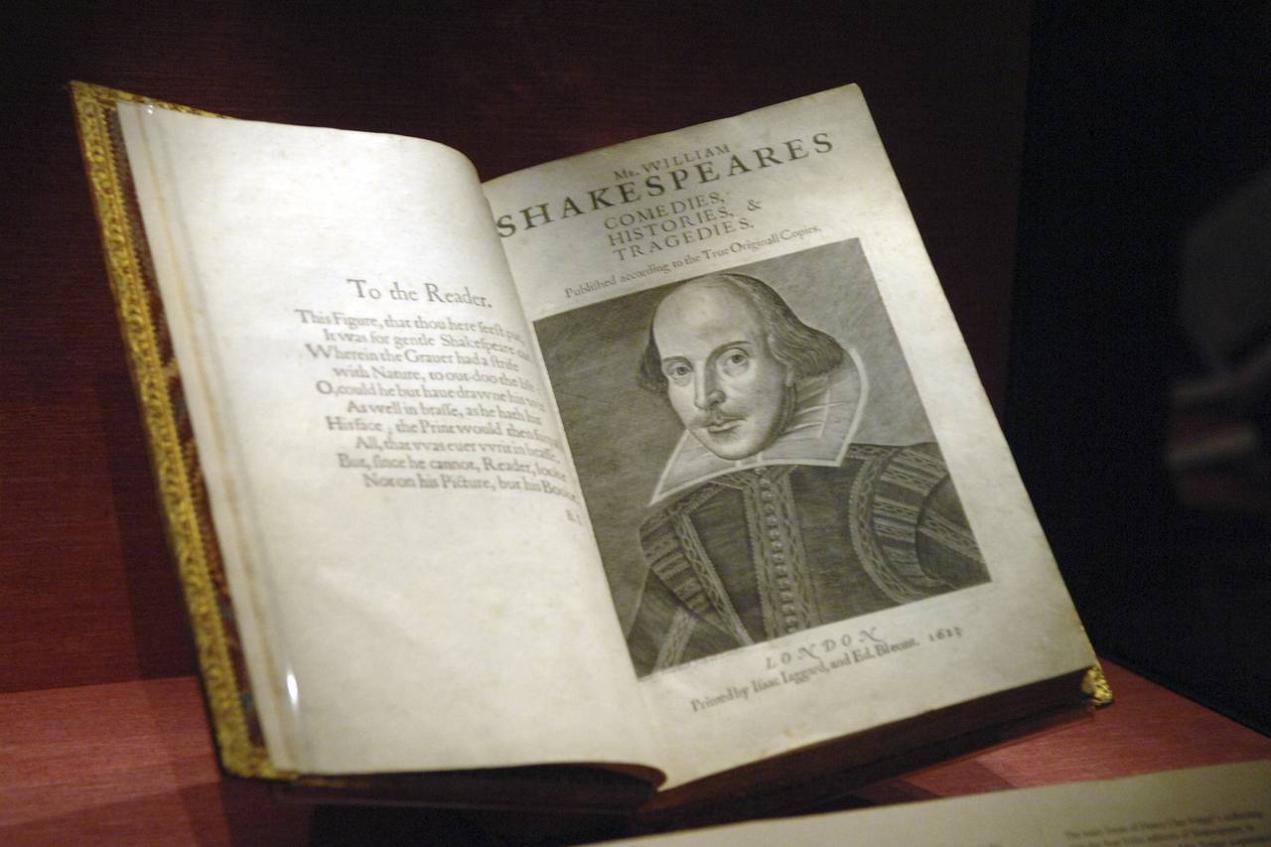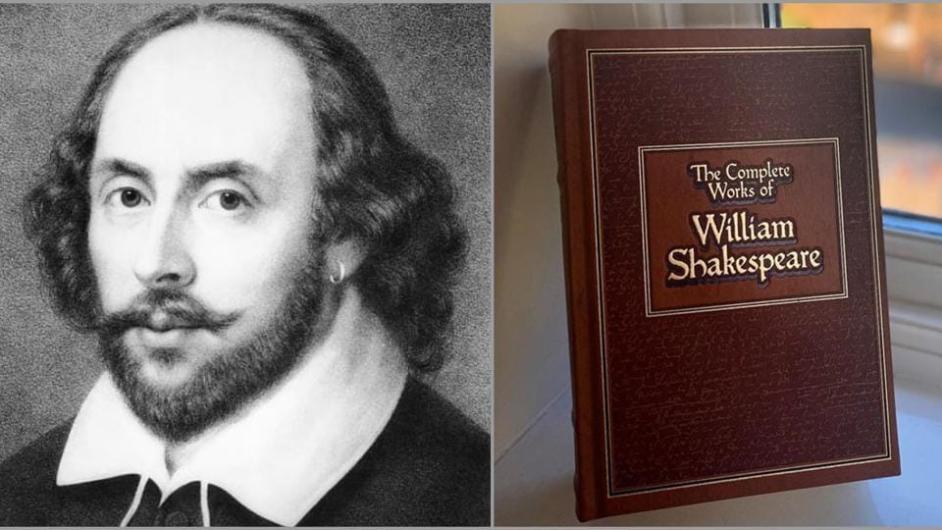Unraveling the Enigma: Intriguing Theories About Shakespeare
William Shakespeare, the bard of Avon, stands as a literary colossus whose works have captivated audiences for centuries. His plays, sonnets, and poems have transcended time and cultural boundaries, leaving an indelible mark on the world of literature and theater. Yet, despite his enduring legacy and global impact, the man himself remains shrouded in mystery. The scarcity of biographical information has fueled a plethora of theories and speculations about Shakespeare's life, works, and influences. This article delves into some of the most intriguing theories that have emerged over the years, shedding light on the ongoing fascination with the enigmatic playwright.

Authorship Controversies
At the heart of the Shakespearean enigma lies the question of authorship. The traditional view holds that William Shakespeare of Stratford-upon-Avon was the sole author of the works attributed to him. However, alternative theories have emerged, challenging this long-held belief.
- Sir Francis Bacon: Some scholars posit that Sir Francis Bacon, a renowned philosopher and statesman, was the true author of Shakespeare's works. They point to Bacon's vast knowledge, literary style, and alleged involvement in courtly intrigue as evidence supporting their claim.
- Christopher Marlowe: Another contender for Shakespeare's authorship is Christopher Marlowe, a contemporary playwright known for his tragic dramas. Proponents of this theory argue that Marlowe's untimely death in 1593 left a void that Shakespeare filled, adopting Marlowe's unfinished works and passing them off as his own.
- Edward de Vere, 17th Earl of Oxford: Edward de Vere, a nobleman and poet, has also been put forward as a potential candidate for Shakespeare's authorship. Supporters of this theory cite de Vere's education, social status, and literary accomplishments as evidence of his involvement in the creation of Shakespeare's plays.
- Others: Numerous other individuals, including Queen Elizabeth I, Sir Walter Raleigh, and the Earl of Southampton, have been proposed as possible authors of Shakespeare's works. However, these theories lack substantial evidence and have gained less traction compared to the aforementioned contenders.
The debate over Shakespeare's authorship continues to ignite passionate discussions among scholars and enthusiasts alike. While evidence and arguments exist for and against each theory, the question of who truly penned the works attributed to Shakespeare remains a captivating mystery.
Hidden Messages and Codes

Another intriguing aspect of Shakespearean scholarship revolves around the idea of hidden messages and codes embedded within his works. Some researchers believe that Shakespeare concealed secret meanings, ciphers, and numerical patterns in his plays and poems.
- Numerical Patterns and Anagrams: Certain scholars have identified numerical sequences and anagrams that they claim hold cryptic messages. For instance, the number 1564, which appears in several plays, has been interpreted as a reference to the year of Shakespeare's birth.
- Acrostics and Embedded Messages: Others have pointed to acrostics, where the first letters of successive lines spell out a hidden message, as evidence of coded communication. Additionally, some believe that Shakespeare embedded personal and political messages within his works, using wordplay and symbolism to convey hidden meanings.
- Allegorical Interpretations: Some theories suggest that Shakespeare's plays contain allegorical layers, with characters and events representing deeper philosophical or political concepts. For example, the character of Prospero in "The Tempest" has been interpreted as a representation of Shakespeare himself, reflecting his own life experiences and artistic struggles.
While the credibility and significance of these theories remain subjects of debate, they add an extra layer of intrigue to Shakespeare's works, inviting readers to explore the possibility of hidden depths and esoteric meanings.
Shakespeare's Identity and Personal Life

Speculations about Shakespeare's true identity and personal life have also captured the imagination of many. Some theories challenge the traditional narrative of Shakespeare as a humble playwright from Stratford-upon-Avon.
- Aristocratic Origins: Some scholars believe that Shakespeare was not born into the working class but had aristocratic connections. They point to his extensive knowledge of courtly life and politics, as well as his ability to write in a style that appealed to both commoners and nobles, as evidence of his privileged upbringing.
- Extensive Travels: Others suggest that Shakespeare traveled extensively throughout Europe, gaining firsthand experience of different cultures and languages. They cite references to foreign locations and customs in his plays as evidence of his cosmopolitan background.
- Espionage and Political Intrigue: Some theories even posit that Shakespeare was involved in espionage or political intrigue. They point to his alleged connections to powerful figures of the time, as well as the political undertones and historical accuracy found in his plays, as evidence of his involvement in clandestine activities.
While these theories lack concrete evidence and have been largely dismissed by mainstream scholarship, they continue to fuel speculation and debate about the enigmatic life of William Shakespeare.
Shakespeare's Sources and Influences
Another area of scholarly inquiry focuses on Shakespeare's sources and influences. Did he borrow heavily from other writers, or did he transform and elevate his source material to create something entirely new?
- Classical Literature: Shakespeare's works are replete with references to classical literature, including Greek and Roman mythology, history, and philosophy. He drew inspiration from authors such as Ovid, Plutarch, and Seneca, incorporating their stories and themes into his own plays.
- Medieval and Renaissance Texts: Shakespeare was also influenced by medieval and Renaissance literature, including chronicles, romances, and morality plays. He adapted and reimagined traditional tales, infusing them with his unique insights and dramatic flair.
- Contemporary Events and People: Shakespeare's plays often reflect the social, political, and cultural events of his time. He incorporated contemporary issues, historical figures, and popular beliefs into his works, creating a rich tapestry of Elizabethan life.
Shakespeare's ability to synthesize and transform his sources into something new and enduring is a testament to his genius as a writer. His works stand as a testament to the power of literature to transcend time and culture, speaking to audiences across centuries and continents.
The theories and speculations surrounding Shakespeare's life, works, and influences are a testament to the enduring fascination with the enigmatic playwright. While some theories may lack concrete evidence or have been largely dismissed by mainstream scholarship, they continue to spark debate and inspire new interpretations of Shakespeare's works. The ongoing nature of Shakespearean scholarship is a reflection of the bard's enduring legacy and the timeless appeal of his plays and poems. Embracing diverse perspectives and interpretations allows us to delve deeper into the complexities of Shakespeare's world and appreciate the richness and depth of his artistic vision. Ultimately, the enduring fascination with Shakespeare lies in the enduring power of his words to transport us to different realms, challenge our assumptions, and illuminate the human condition in all its complexity.
YesNo

Leave a Reply